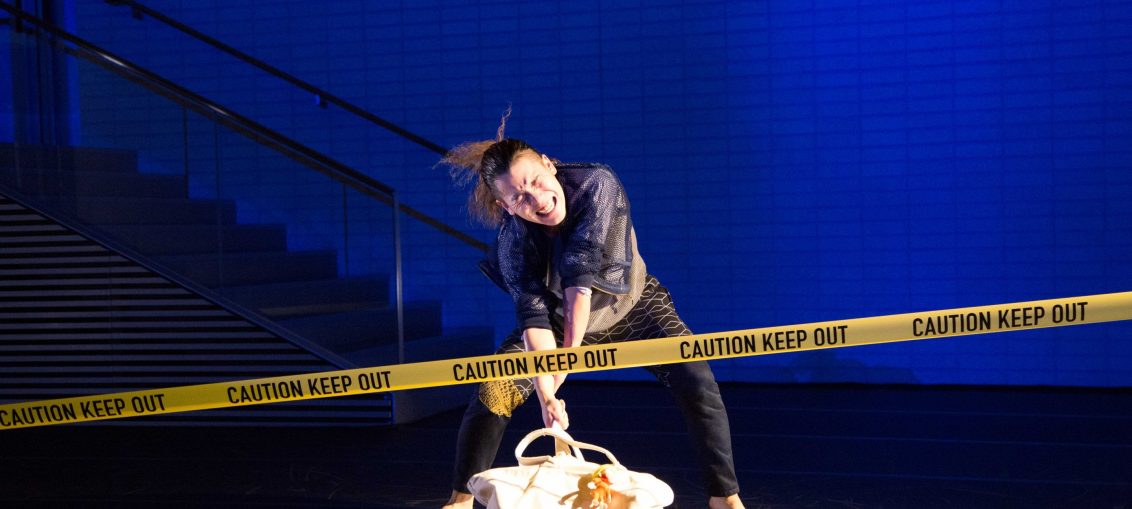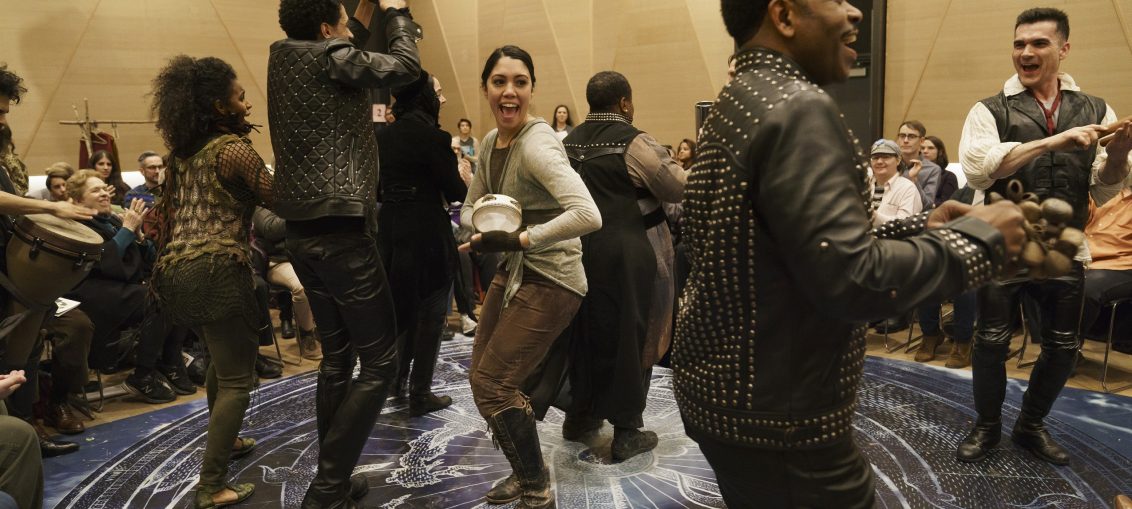When the lights come up, one immediately observes what could only be a silverback gorilla. The gait, the strut, the way he pounds his chest and paces the stage -- anyone who has seen a nature film or visited a zoo would find these distinctive characteristics undeniable. But why is he there, what is this about? Suddenly and unexpectedly, after the attendees have spent some time with the ape, the performer morphs into a couple, then an obnoxious and rowdy child, followed by a gentle yet absent-minded mother, a passionate but perturbed photographer and, finally, an annoyed older man. This
Tag: the public theater
Mobile Unit’s THE TEMPEST at The Public Theater
The stormy start to May has served as a fitting setting for the debut of The Public Theater’s Mobile Unit production of Shakespeare’s The Tempest, that washed up on its home shores near Astor Place after a three-week, 17 stop tour to correction facilities, homeless shelters, libraries and community centers across all five boroughs of New York City. The Mobile Unit really puts the “public” in The Public Theater, whose prestigious productions continue to sell out, garner audience and critical praise and conquer both the commercial (anyone heard of a little historical musical about a dead politician called Hamilton?) and
SOCRATES at THE PUBLIC THEATER
Lecture, exhortation, dissertation, harangue. These are all synonyms for “talking”, which is what the subject of actor/director/playwright Tim Blake Nelson’s new play Socrates --- now playing at The Public Theater extended through June 2nd as the anchor of Onassis USA Festival 2019: Democracy is Coming --- is best known for. In fact, he made a life, death and immortality out of being a relentless orator, so much so that a man born in 470 B.C.E. is still a topic of modern tongues and his tradition of thought, theories and philosophies are taught as required curriculum at any liberal arts school
Mobile Unit: Henry V at The Public Theater
At any given moment in a theatrical season, it is likely there is a Shakespearean production being performed in both major and minor theatres and cities across the English-speaking world. The Bard’s relentless staying power is undeniable. But how do modern companies keep the work fresh and relevant, particularly the Histories, many of which are set in times, places and about people which seem to bear little significance on contemporary life in America? One simple answer is that at the root of all of these stories lie rich, complex and utterly human characters whose grappling with their struggles and delights in their
 Wednesday, January 7, 2026
Wednesday, January 7, 2026


